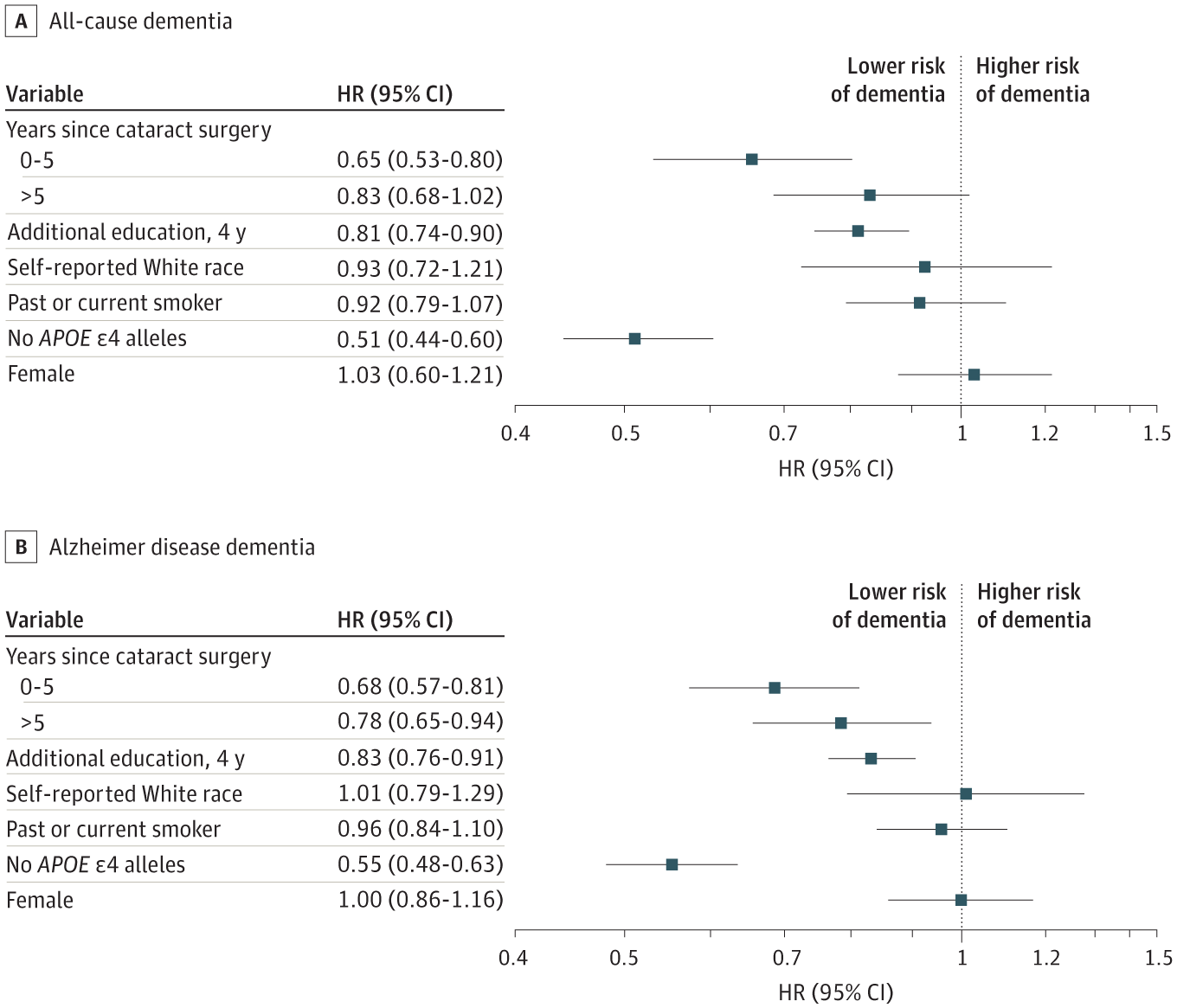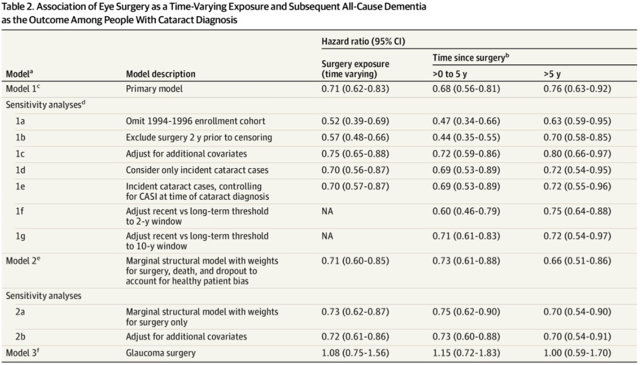In a new paper published in JAMA Internal Medicine, Dr. Cecilia Lee and her colleagues report exciting findings related to the association between cataract surgery and dementia risk. Using data from Adult Changes in Thought, an ongoing longitudinal study following 5000+ older adults for the development of Alzheimer disease and other dementias, they compared outcomes of participants with cataract who had surgery to those who did not. Participants who underwent cataract surgery had nearly 30% lower risk of developing dementia from any cause compared with those who did not, even after controlling for many health-related confounders and potential sources of biases.

The results of this study add to the body of evidence supporting the idea that improving vision helps to prevent the development of dementia. One possible mechanism by which cataract surgery could decrease the risk of dementia or Alzheimer disease is by enabling higher quality sensory input to the retina and therefore improving stimuli to the brain. In addition, patients may be able to engage with the world more fully with improved vision, and this may have a protective effect from dementia development.
Another potential explanation for the association between cataract surgery and decreased dementia risk centers around how cataract affects the type and quality of light that reaches the retina. Cataract causes the lens to develop a yellow tint, which blocks blue light. Special cells in the retina called intrinsically photosensitive retinal ganglion cells (ipRGCs) are exquisitely sensitive to blue light stimuli and are known to regulate circadian cycles. Degeneration and altered function of these cells has been shown to be associated with cognition and Alzheimer disease. Because cataract affects the overall quality of light that reaches the retina including the blue light, cataract surgery may enable the reactivation of those cells in a way that is protective against cognitive decline.
For clinicians, these findings highlight the importance of eye health in older adults. To date there are few known measures, other than certain lifestyle factors such as diet and exercise, that are thought to be preventative against dementia. But this study suggests that treating cataract may have additional benefits beyond improving visual acuity and visual function. In addition, these findings strongly support the growing significance of the eye-brain connection for dementia research. Better understanding of the connection between the aging eye and brain may offer insights and potential therapies to slow or prevent age-related dementia in the future.
Lee CS, Gibbons LE, Lee AY, Yanagihara RT, Blazes MS, Lee ML, McCurry SM, Bowen JD, McCormick WC, Crane PK, Larson EB. Association Between Cataract Extraction and Development of Dementia. JAMA Internal Medicine. December 2021. doi:10.1001/jamainternmed.2021.6990

